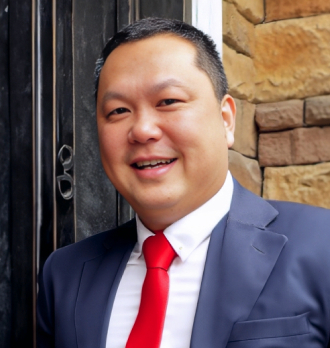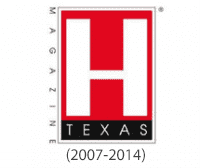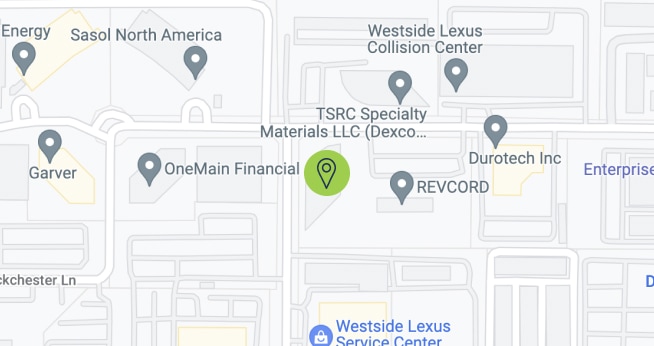Houston Hit and Run Accident Lawyer

Texas treats hit-and-run accidents as serious criminal offenses. When a driver flees an accident scene, law enforcement interviews eyewitnesses, conducts an on-site investigation, and seeks video footage from nearby security cameras. The goal is to identify and locate the driver who fled.
Understanding the processes involved will help you know what to do if you suffer harm in a hit-and-run and how to recover the compensation you deserve. The attorneys at Fleming Law can support you on your road to recovery.
An experienced car accident attorney from Fleming Law will know how to investigate your case, explore all of your insurance options and fight for what you are due. For more than 30 years, we have demanded maximum compensation for auto accident victims and their families in Houston and throughout Texas, including those involved in hit-and-run crashes. We can provide a free, immediate consultation and get to work on your case right away. Contact us today to learn more.
What Is a Hit-and-Run Accident?
If another driver’s vehicle made physical contact with your own vehicle, but the driver fled the scene after the collision, then you have been involved in a hit-and-run accident. Unfortunately, you are not alone. These accidents frequently occur in Houston and communities throughout Texas.
A driver violates Texas Transportation Code §§ 550.021 and 550.023 if the driver flees the scene of a crash that results (or is reasonably likely to result in) the injury or death of a person. If the police eventually catch the driver, then he or she could face a felony conviction. Still, despite those possible consequences, many drivers flee anyway because they:
- Don’t have a driver’s license (or have a suspended license)
- Have warrants against them (possibly for other serious offenses)
- Lack liability auto insurance (the Insurance Information Institute estimates that 14.1 percent of the state’s drivers are uninsured)
- Are impaired by alcohol or drugs
- Stole the car or otherwise lacked the owner’s permission to use it.
In reality, police rarely catch hit-and-run drivers. If the accident occurs in a heavily populated area like Houston, tracking down the driver can be like trying to find a needle in a haystack. Still, you can take steps to protect your rights and pursue compensation if a hit-and-run driver injures you.
What Are the Laws in Texas Regarding Hit-and-Run Accidents?
Texas law requires individuals involved in accidents to stop and take specific actions, such as rendering aid, providing personal information, and reporting to law enforcement. Failure to do so can result in arrest. Leaving the scene of an accident is a serious offense that carries significant criminal charges, ranging from misdemeanors to felonies, depending on the extent of damage or injury.
Why Do Some People Flee the Scene of the Accident?
There are several reasons why people flee the scene of an accident. Some drivers may be unlicensed or under the influence of alcohol. Others may lack insurance coverage, be driving a stolen vehicle, or transporting stolen goods. Additionally, individuals may flee to avoid repercussions from their employers or immigration officials.
Whatever the reason, hit-and-run accidents are often traumatic for the victims, and the consequences can be severe and far-reaching.
Are There Different Types of Hit-and-Run Accidents?
Hit-and-run accidents can occur in various scenarios, including:
- Head-on collisions
- Rear-end collisions
- T-bone crashes
- Sideswipe accidents
- Multi-car pileups
- Backing-up accidents
- Truck accidents
In addition to collisions with other moving vehicles, hit-and-run accidents can also involve parked cars, pedestrians, or buildings. Regardless of the type, those who suffer losses due to hit-and-run accidents deserve justice.
Will the Police Investigate the Hit-and-Run If It Is a Minor Accident?
The police will investigate all hit-and-run accidents, even if they appear minor. In Texas, leaving the scene of an accident is a criminal offense – regardless of the severity of the damage. It is important to remember that what may appear to be minor damage to a vehicle could still result in significant repair costs.
What Can I Do to Help the Police Find the Hit-and-Run Driver?
Any information you can provide to the police can help in their investigation. This information may include:
- Details about the other vehicle
- The direction the vehicle went after the collision
- Information about any potential witnesses
- Photos or video of the incident
However, dealing with a police investigation can feel overwhelming after you’ve been the victim of a hit-and-run accident. Having an experienced Houston car accident attorney on your side can take much of the stress off your shoulders so you can focus on your recovery. Contact our Houston car accident lawyer today.
Hit and Run Investigations
Hit-and-runs are often difficult to try in court because in many cases, a defendant cannot be produced. Obtaining a judgment, however, is not impossible, as long as the victim can identify the responsible party. The police are usually involved in all investigations and will take the following steps:
- Record the testimonies of eyewitnesses who may have seen the accident or recorded it with their smartphones;
- Interview anyone who has a description of the car; and
- Look for street cameras, or business or apartment complex security cameras in the area that may have captured the accident.
Unfortunately, even those who can identify the vehicle that hit them will have a difficult time trying to prove who was driving at the time unless a video recording of the accident exists. Often, an investigator must speak with the owner of the car, as well as his or her family members and friends to discover who was driving. The descriptions of eyewitnesses can also be crucial in identifying the at-fault party.
What Should You Do If You Are in a Hit-and-Run Accident in Houston?
If another driver hits your car and fails to stop, don’t try to chase the driver. Instead, you should try to do as much of the following as possible:
- Call the police. Dial 911, describe the crash, and give any information that can help the police to locate the driver. For instance, you may have a license plate number you can share or the color, make, and model of the car. The police can also secure the accident scene and prepare a crash report.
- Gather evidence at the scene. If you can, try to take photos of the crash scene, including your vehicle and surrounding skid marks and debris. You should also get the names and phone numbers of witnesses. All of this information can help to establish that another driver actually hit you. If you are too hurt, ask a passenger, family member, friend or bystander for help.
- Seek medical attention. If the EMTs do not immediately take you to the hospital, you should see a doctor on your own as soon as possible. A timely diagnosis of your injuries will play a key role in any hit-and-run insurance claim that you file.
- Get a copy of the crash report. Within a few days after the crash, the police report should be available. You can go directly to the agency such as the Houston Police Department or Harris County Sheriff’s Office, or you can go online. The fees for a certified copy typically range from $6 to $8.
- Report the accident to your insurance company. Your insurer probably requires you to report the accident. If you fail to comply with the policy, the insurer may deny any hit-and-run insurance claim that you file. So, don’t wait too long to report your crash.
- Get help from a lawyer. The sooner you get an attorney involved in your hit-and-run case, the better off you will be in the long run. At Fleming Law, we make it easy for you to get legal help. We never charge for initial consultations, and you will pay no costs or fees unless we recover compensation for you.
What Types of Insurance Can Help You After a Hit-and-Run Crash?
If the police catch the driver who caused your accident, you can follow the traditional route for seeking compensation. In other words, you can file a claim through the at-fault driver’s liability auto insurance. However, if the driver gets away – again, that’s highly common – you may have many options available through your own auto insurance. When you work with Fleming Law we will review your policy with you and explore options that may include:
- Uninsured Motorist (UM) Bodily Injury – Insurance companies must offer this coverage. Unless you rejected it in writing, you should have this coverage available to you. It can cover your medical costs, lost income, disfigurement, permanent or partial disability and pain and suffering damages – up to your policy limits.
- Uninsured Motorist (UM) Property Damage – This coverage can pay for your vehicle repairs or provide the “actual cash value” for your vehicle if the insurance company deems it to be “totaled.” Most policies also cover the costs of a rental car, too.
- Collision – This is an optional type of insurance coverage. However, if you are financing your car, the lender may require you to have it. Like UM, it can cover the repair or replacement of your vehicle. Unlike UM, you will not need to show that another driver was at fault.
- Medical Payments – Many people today have this coverage. It can cover medical expenses or, if you lost a loved one, burial and funeral expenses as well (up to the policy’s limits). Like collision coverage, you can be eligible for this coverage regardless of who was at fault.
- Personal Injury Protection – Unless you rejected it in writing, you should have at least $2,500 in PIP coverage. It can pay for your medical bills as well as up to 80 percent of your lost income and caregiver expenses. This is another type of no-fault coverage.
The Most Common Questions About Hit-and-Run Insurance Claims
Hit-and-run accidents can lead to confusion and frustration. It is important to work with an attorney who will explain your rights and options to you in clear, easy-to-understand terms and answer any questions you may have. Two common questions that our Houston car accident attorneys hear are:
- Do I have to pay a deductible for a hit-and-run insurance claim? It depends on what type of claim you file. For instance, you will not pay a deductible for a UM bodily injury claim. However, you will pay a $250 deductible for a UM property damage claim.
- Will a hit-and-run claim increase my insurance rates? No, an insurance company cannot raise your premiums based solely on the fact that you were in a hit-and-run accident. However, if your own negligence contributed in some way to the crash, the insurer may try to use that fact to raise your rates.
How can You Get Compensation for Your Injuries in a Hit and Run Accident?
Victims of hit and runs should seek medical attention immediately, even if they do not believe they are injured, as many injuries, such as concussions and whiplash do not manifest right away. The injured party will also need to keep track of all medical care received, including information about where and when they were treated. Even if the person who caused the crash has not been identified, hit and run victims should contact an attorney who can help them seek coverage under their uninsured motorist insurance. However, if the at-fault party has been found, the injured party’s attorney can file a claim with the other driver’s insurer. Finally, if the police are only able to locate the car and its owner, but the owner says he or she was not driving it when the accident occurred, an attorney can help the injured party file a claim against the owner. Eventually, a diligent attorney may be able to determine whether the owner allowed a family member or friend to drive the car on the day in question, in which case, he or she can be held liable for negligent entrustment.
How Can a Lawyer Help You After a Hit-and-Run Accident?
Even though you deal with your own insurance company, seeking compensation in a hit-and-run insurance claim is rarely an easy, straightforward process. Insurance companies want to protect their profits. So, despite the fact that your insurer has collected your payments, you should expect the company to look for ways to deny or minimize your payout. That’s why you need to have an experienced Houston car accident lawyer on your side.
For instance, insurance companies often try to avoid paying claims by arguing that no contact ever occurred with another vehicle. The attorneys of Fleming Law will thoroughly investigate your crash, including gathering and analyzing all photos, video, witness statements and other evidence. We will vigorously challenge any unfounded claims that no contact occurred or that you were somehow at fault in the crash.
We will also carefully calculate all of your damages. As part of that process, we will collect and review your medical records in order to establish the severity of your injuries. We may also consult with medical experts.
We are highly experienced negotiators who will demand a full and fair settlement of your hit-and-run claim. However, if necessary, we will be ready to fight for you at trial.
Call a Dedicated Houston Hit and Run Attorney
If you were injured or your car was damaged in a hit-and-run accident, retaining an attorney is often critical to discovering the identity of the at-fault party and holding him or her accountable. Please call Fleming Law at 737-201-0543 to learn more about your legal options from an experienced hit-and-run attorney today.













